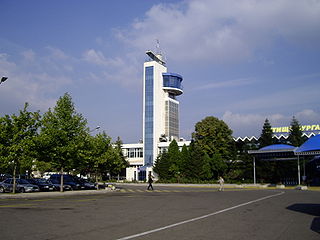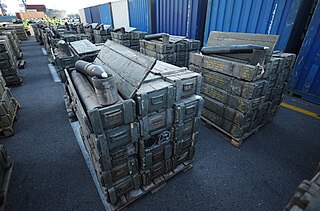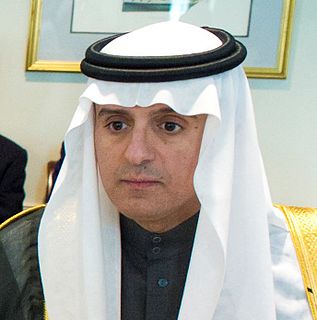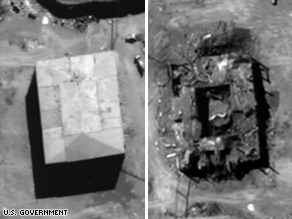 W
WThe Iran–Israel proxy conflict, also known as the Iran–Israel proxy war or Iran–Israel Cold War, is an ongoing proxy war between Iran and Israel. The conflict is bound in threats, hostility of Iran's leaders against Israel, and their declared objective to dissolve the Jewish state. Israel is concerned by Iran's nuclear weapons program, and is seeking to downgrade Iran's allies and proxies such as the Lebanese Hezbollah political-militant organization.
 W
WThe 2006 Lebanon War, also called the 2006 Israel–Hezbollah War and known in Lebanon as the July War and in Israel as the Second Lebanon War, was a 34-day military conflict in Lebanon, Northern Israel and the Golan Heights. The principal parties were Hezbollah paramilitary forces and the Israel Defense Forces (IDF). The conflict started on 12 July 2006, and continued until a United Nations-brokered ceasefire went into effect in the morning on 14 August 2006, though it formally ended on 8 September 2006 when Israel lifted its naval blockade of Lebanon. Due to unprecedented Iranian military support to Hezbollah before and during the war, some consider it the first round of the Iran–Israel proxy conflict, rather than a continuation of the Arab–Israeli conflict.
 W
WIn January and February 2009, there was a series of two air strikes in Sudan and one in the Red Sea, allegedly conducted by Israel against Iranian arms being smuggled to the Gaza Strip through Sudan. The Israeli government hinted that Israeli forces were involved in the incident.
 W
WThe December 2014 Rif Dimashq airstrikes were a series of aerial attacks made on targets in Syria on 7 December 2014. The targets were a military area in Al-Dimas and the Damascus International Airport area.
 W
WAs a response to an attack against a military convoy comprising Hezbollah and Iranian officers on January 18, 2015 at Quneitra in southern Syria, the Lebanese Hezbollah group launched an ambush on January 28 against an Israeli military convoy in the Israeli-occupied Shebaa Farms, firing anti-tank missiles against two Israeli Humvees patrolling the border, destroying the two Humvees and killing 2 and wounding 7 Israeli soldiers, according to Israeli military. The number of Israeli casualties was 15 according to a report by Al Mayadeen television station. A Spanish UN peacekeeper was also killed by Israeli fire during consequent fire exchanges in the area, with Israel firing artillery and Hezbollah responding by mortar shells. The conflict ended later the same day after UNIFIL mediation.
 W
WThe April 2015 Qalamoun incident was a series of attacks made on targets in Qalamoun region of Syria on the morning on 25 April 2015. The targets were the Brigade 155 and Brigade 65 bases in the Qalamoun. Two weapons convoys were also targeted, reportedly killing one person. According to an opposition source, the targets were Hezbollah camps and ammo storages within the two bases. Several explosions were heard in the areas of Kteife, Yabrud and a village in Qalamoun. Plumes of smoke were seen above the Brigade 65 base, shortly after the strikes.
 W
WThe 2019 Israeli airstrikes in Iraq began as unidentified drone or aircraft bombings of the Iranian-backed Popular Mobilization Forces (PMF) bases in Iraq starting on 19 July 2019. The strikes targeted Iranian proxy groups, based in Iraq, as well as IRGC operatives.
 W
WThe 2019–2020 Persian Gulf crisis is an intensification of military tensions between the Islamic Republic of Iran and their allies and the United States of America and their allies in the Persian Gulf region. The U.S. began a buildup of its military presence in the region to deter an alleged planned campaign by Iran and its non-state allies to attack American forces and interests in the Persian Gulf and Iraq. This followed a rise in political tensions between the two countries during the Trump administration, which included the withdrawal of the U.S. from the Joint Comprehensive Plan of Action (JCPOA), the imposition of new sanctions against Iran, and the designation of the Islamic Revolutionary Guard Corps (IRGC) as a terrorist organization. In response, Iran designated the United States Central Command as a terrorist organization.
 W
WThe Abraham Accords are a joint statement between Israel, the United Arab Emirates and the United States, reached on August 13, 2020. Subsequently the term was used to refer collectively to agreements between Israel and the United Arab Emirates and Bahrain, respectively.
 W
WThe Abu Hasan was a fishing vessel used to smuggle weapons into the Gaza Strip. The boat was intercepted and seized by the Israeli Navy on May 21, 2003.
 W
WMasoud Alimohammadi was an Iranian quantum field theorist and elementary-particle physicist and a distinguished professor of elementary particle physics at the University of Tehran's Department of Physics. He was assassinated on 12 January 2010 in front of his home in Tehran, while leaving for university. Majid Jamali Fashi was convicted of his killing and executed on 15 May 2012. According to Time magazine, Western intelligence confirmed that the confession of Majid Jamali Fashi was genuine.
 W
WBidganeh arsenal explosion was a large explosion that occurred about 13:30 local time, 12 November 2011 in Iran's Moddares garrison missile base. The facility is also referred to as Shahid Modarres missile base, and the Alghadir missile base. Seventeen members of the Revolutionary Guards were killed in this incident, including Major General Hassan Moqaddam, described as "a key figure in Iran's missile programme".
 W
WThe 2012 Burgas bus bombing was a terrorist attack carried out by a suicide bomber on a passenger bus transporting Israeli tourists at the Burgas Airport in Burgas, Bulgaria, on 18 July 2012. The bus was carrying 42 Israelis, mainly youths, from the airport to their hotels, after arriving on a flight from Tel Aviv. The explosion killed the Bulgarian bus driver and five Israelis and injured 32 Israelis, resulting in international condemnation of the bombing.
 W
WThe Francop Affair was a high seas incident on November 4, 2009 in which the Israeli Navy seized the cargo ship MV Francop in the eastern Mediterranean Sea and its cargo of hundreds of tons of weapons allegedly bound from Iran to Hezbollah. The incident is also known by its military operation name, Operation Four Species.
 W
WOperation Full Disclosure was a military operation carried out by the Israel Defense Forces on March 5, 2014, in the Red Sea. After days of surveillance far out to sea, Israeli Navy Shayetet 13 commandos seized the Iranian-owned and Panamanian-registered merchant vessel Klos C that had set sail from Iran, heading for Port Sudan via Iraq. On board, the commandos found long-range missiles suspected to be destined for Gaza concealed in containers full of Iranian bags marked as Portland cement. An unnamed senior Egyptian security official reportedly confirmed that the arms shipment was headed for militants in either Gaza or Sinai. A UN panel of experts concluded that the weapons came from Iran and were being sent to Sudan, accusing Iran of violating the arms embargo. United Nations Security Council Resolution 1929 authorizes states to seize items, including arms, that Iran is forbidden from exporting.
 W
WHezbollah involvement in the Syrian Civil War has been substantial since the beginning of armed insurgency phase of the Syrian Civil War in 2011, and evolved into active support for Ba'athist government forces and troop deployment from 2012 onwards. By 2014, Hezbollah was deployed across Syria. Hezbollah deployed several thousand fighters in Syria and has lost up to 1,700 fighters in combat. Hezbollah has also been very active in preventing Syrian rebel penetration into Lebanon, being one of the most active forces in the Syrian Civil War spillover in Lebanon.
 W
WOn 11 October 2011, United States officials alleged there was a plot tied to the Iranian government to assassinate Saudi ambassador Adel al-Jubeir in the United States. The plot was referred to as the "Iran assassination plot" or the "Iran terror plot" in the media, while the Federal Bureau of Investigation named the case "Operation Red Coalition". Iranian nationals Manssor Arbabsiar and Gholam Shakuri were charged on 11 October 2011 in federal court in New York with plotting to assassinate Al-Jubeir. According to U.S. officials, the two planned to kill Al-Jubeir at a restaurant with a bomb and subsequently bomb the Saudi embassy and the Israeli embassy in Washington, D.C. Bombings in Buenos Aires were also discussed. Arbabsiar was arrested on 29 September 2011 at John F. Kennedy International Airport in New York while Shakuri remained at large. On 24 October 2011, Arbabsiar pleaded not guilty. In May 2013, after pleading guilty, Arbabsiar was sentenced to 25-years imprisonment.
 W
WThe Iran–Saudi Arabia proxy conflict, sometimes also referred to as the Middle Eastern Cold War, is the ongoing struggle for influence in the Middle East and surrounding regions between the Islamic Republic of Iran and the Kingdom of Saudi Arabia. The two countries have provided varying degrees of support to opposing sides in nearby conflicts, including the civil wars in Syria and Yemen. The rivalry also extends to disputes in Bahrain, Lebanon, Qatar, Pakistan, Afghanistan, Nigeria, and Morocco, as well as broader competition in North and East Africa, parts of South Asia, Central Asia, Southeast Asia, the Balkans, and the Caucasus.
 W
WThe May 2013 Rif Dimashq airstrikes were a series of aerial attacks made on targets in Syria on 3 and 5 May 2013. The 3 May attack was on targets at Damascus International Airport. The 5 May attacks were on targets at Jamraya, and the Al-Dimas and Maysalun areas in Rif Dimashq. Although officially Israel neither confirmed nor denied its involvement, former Mossad director Danny Yatom and former government member Tzachi Hanegbi inferred Israel's involvement in the attack. Official Syrian sources denied any attack on its soil on 3 May, but did accuse Israel for the attacks on 5 May.
 W
WOperation Northern Shield was an Israeli military operation that took place from 4 December 2018 until 13 January 2019. The operation’s declared goal was to locate and destroy Hezbollah tunnels that cross the Blue Line from Lebanon into northern Israel. According to Israel, this operation is part of the ongoing Iran–Israel proxy conflict. On 17 December 2018, United Nations Interim Force in Lebanon (UNIFIL) acknowledged the existence of four tunnels near the Israel–Lebanon border, but said "UNIFIL at this stage can confirm that two of the tunnels cross the Blue Line" in violations of United Nations Security Council Resolution 1701, which helped end the 2006 Lebanon War.
 W
WOperation Outside the Box was an Israeli airstrike on a suspected nuclear reactor, referred to as the Al Kibar site, in the Deir ez-Zor region of Syria, which occurred just after midnight on 6 September 2007. The Israeli and U.S. governments did not announce the secret raids for seven months. The White House and Central Intelligence Agency (CIA) subsequently confirmed that American intelligence had also indicated the site was a nuclear facility with a military purpose, though Syria denies this. A 2009 International Atomic Energy Agency (IAEA) investigation reported evidence of uranium and graphite and concluded that the site bore features resembling an undeclared nuclear reactor. IAEA was initially unable to confirm or deny the nature of the site because, according to IAEA, Syria failed to provide necessary cooperation with the IAEA investigation. Syria has disputed these claims. Nearly four years later, in April 2011 during the Syrian Civil War, the IAEA officially confirmed that the site was a nuclear reactor. Israel did not acknowledge the attack until 2018.
 W
WThe 2006 Israel–Gaza conflict, known in Israel as Operation "Summer Rains" was a series of battles between Palestinian militants and the Israel Defense Forces (IDF) during summer 2006, prompted by the capture of Israeli soldier Gilad Shalit by Palestinian militants on 25 June 2006. Large-scale conventional warfare occurred in the Gaza Strip, starting on 28 June 2006, which was the first major ground operation in the Gaza Strip since Israel's unilateral disengagement plan was implemented between August and September 2005.
 W
WThe January 2013 Rif Dimashq airstrike was an aerial attack in the Rif Dimashq Governorate of Syria, which targeted a convoy alleged to be carrying weapons from Syria to the Lebanese Shi'a militia Hezbollah. The convoy was attacked on 31 January 2013. According to several media sources, Israeli forces allegedly conducted the strike, however Israel hasn't officially responded to the allegations.
 W
WRussia and the Iran–Israel proxy conflict deals with Russian foreign policy in the Middle East during the early 2000s, in light of the Iran–Israel proxy conflict.
 W
WTehran is an Israeli espionage thriller television series created by Moshe Zonder for the Israeli public channel Kan 11. The series is written by Zonder and Omri Shenhar and directed by Daniel Syrkin. The series is about the Israeli–Iranian conflict.
 W
WThe Victoria Affair was a military operation conducted by the Israel Defense Forces (IDF) in March 2011 in which the Israeli Navy intercepted the vessel Victoria on the international waters in the Mediterranean, and discovered concealed weapons which, according to the IDF, were destined for Palestinian militant organizations in the Gaza Strip. The vessel was found to be carrying approximately 50 tons of weapons, including C-704 anti-ship missiles, rocket launchers, radar systems, mortar shells and rifle ammunition.
 W
WOn Tuesday, 23 October 2012 at midnight local time there was an explosion at the Yarmouk munitions factory, south of Khartoum, Sudan. The factory had been built in 1996. According to Khartoum state governor Abdel Rahman Al-Khidir, the explosion probably happened at the main storage facility. The resulting fire resulted in the death of two people and one person being injured. According to Sudanese opposition, the arms factory belonged to Iran's Revolutionary Guard.